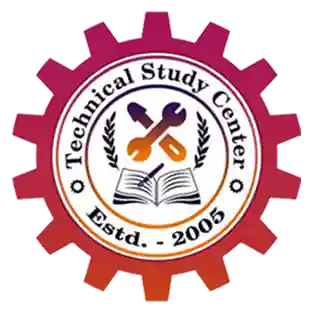Civil Engineering is more than just constructing buildings and bridges—it is about shaping the world, solving real-world problems, and creating structures that last for generations. A Diploma or B.Tech in Civil Engineering opens the door to government jobs, PSUs, and private-sector opportunities. But success in this field requires practical knowledge, problem-solving skills, and the ability to think beyond textbooks.
At Technical Study Center, we focus on hands-on learning, expert guidance, and strategic preparation to help students succeed in competitive exams, PSU recruitments, and core engineering jobs.
Unique Learning Strategies for Civil Engineering Students
Most students focus only on theoretical concepts, but true success comes from practical application, field knowledge, and smart strategies. We use innovative teaching methods to prepare students for real-world challenges and competitive exams.
1. Mastering Structural Analysis with Real-World Insights
Understanding how structures behave under different forces is key to Civil Engineering. Instead of memorizing formulas, we use:
- Live Demonstrations – Learning how a beam bends under load using physical models improves understanding.
- Bridge & Building Site Visits – Seeing real projects helps students connect theory with practical application.
- Case Studies of Structural Failures – Studying past bridge collapses and building failures teaches what went wrong and how to prevent it.
This method strengthens problem-solving skills and improves exam performance in subjects like Structural Analysis, Strength of Materials, and RCC Design.
2. Smart Approach to Surveying & Geotechnical Engineering
Many students find Surveying & Geotechnical Engineering challenging. We simplify these subjects through:
- Practical Training on Surveying Equipment – Instead of just reading about Total Stations, GPS, and Theodolites, we provide hands-on experience in using them.
- Understanding Soil Mechanics through Simple Experiments – Knowing how soil behaves under pressure through lab tests like liquid limit and shear strength tests makes learning easier.
- GIS & Remote Sensing Applications – Learning how modern mapping technologies help in infrastructure planning gives an edge in competitive exams.
These techniques ensure students are job-ready and prepared for PSU exams like PWD, CPWD, BRO, and RITES.
3. Cracking Government & PSU Exams with Strategic Preparation
Civil Engineers have excellent job opportunities in government departments, railway projects, public sector units (PSUs), and infrastructure development. Exams like SSC JE, RRB JE, GATE (CE), PWD, and State PSCs require smart preparation techniques.
We focus on:
- Exam-Oriented Study Plans – Covering high-weightage topics first to maximize scoring potential.
- Shortcut Methods for Numerical Problems – Learning fast calculation tricks to save time in exams.
- Mock Tests & Previous Year Paper Analysis – Understanding exam patterns and key topics ensures better performance.
This method helps students excel in competitive exams and secure stable government jobs.
4. Learning Construction Management & Site Engineering the Right Way
Most students focus only on design and planning, but practical site knowledge is equally important. We train students in:
- Construction Project Management – Learning how to schedule, budget, and execute projects efficiently.
- Safety & Quality Control in Construction – Understanding why minor errors can cause major failures.
- Green & Sustainable Building Techniques – Learning how eco-friendly construction reduces costs and improves efficiency.
These skills increase employability and make students stand out in job interviews and PSU recruitments.
5. Developing Soft Skills & Technical Communication
Many Civil Engineers struggle with presentation and communication skills, which are important in job interviews and project discussions. We help students with:
- Technical Report Writing & Documentation – Teaching students to write clear reports, site logs, and project documentation.
- Group Discussions & Interview Preparation – Conducting mock technical interviews and HR discussions to boost confidence.
- Public Speaking & Leadership Training – Helping students become strong communicators and decision-makers.
These skills are essential for leadership roles in construction and infrastructure projects.
